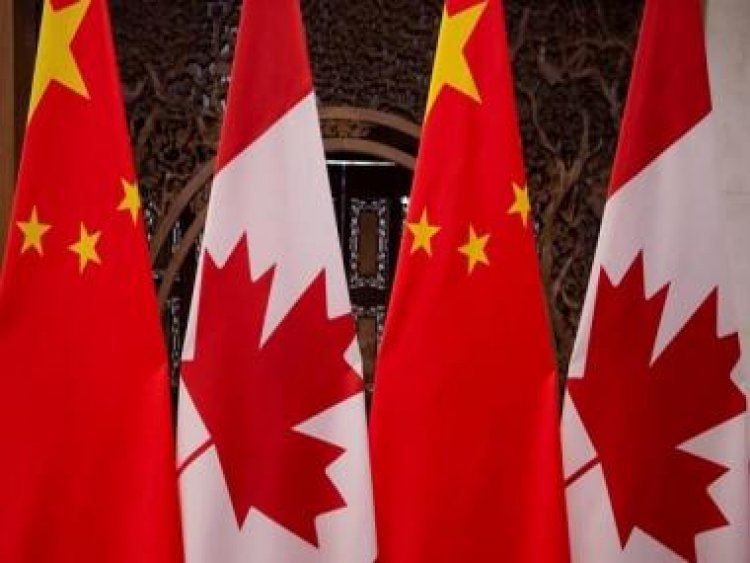Canadians think China not being a reliable trading partner, says survey
Canadians think China not being a reliable trading partner, says survey

New Delhi: Canadian public opinion has turned against trade with China as Prime Minister Justin Trudeau’s government promises to pivot toward democratic allies in Asia.
According to the Nanos Research Group survey for Bloomberg News, 61 per cent of respondents said Canada should reduce its trade with the Asian powerhouse. The survey claims a 16-point increase compared with December 2020, when the number was 45 per cent.
The servey further says 24 per cent of Canadians believe trade with China should stay at the current level, and just 5 per cent want to see an increase.
A report in the South China Morning Post said,”Canadians have now woken up to the fact that China is not a reliable trading partner,” said Margaret McCuaig-Johnston, a China specialist at the University of Ottawa and a former senior public servant.”
Describing the shift in sentiment as “really dramatic”, McCuaig-Johnston said public opinion has been shaped by China’s willingness to drop an “anvil” on Canadian trade products whenever it wants to make a political point, the report added.
China trade pact should reflect ‘Canadian values’
Meanwhile, Canada hopes a trade agreement with China will reflect “Canadian values” in the areas of labor rights, environmental protection and gender equality, Prime Minister Justin Trudeau said last week at the start of a four-day visit to China.
Trudeau also said that he and Chinese Premier Li Keqiang had agreed to a joint statement on climate change and clean growth laying out a blueprint for close collaboration, including regular ministerial-level meetings.
Li said the two countries will continue to work on exploratory talks and feasibility studies for a trade agreement, and that their discussions had also touched on human rights and the rule of law.
“Both sides should view that, due to the different national circumstances, it is only natural that we don’t see eye-to-eye on some issues. As long as we act on the principles of mutual respect, equality and mutual benefit, then we can seek mutual understanding and further promote this bilateral relationship,” Li said.
It’s not clear how close the countries are to a trade agreement, and Trudeau’s proposal that it incorporate issues of governance, the environment and gender equality runs against China’s inclination to keep such issues separate.
“We believe that done properly, a trade agreement will benefit both countries, creating jobs, strengthening the middle class and growing our economies,” Trudeau said. “It’s an opportunity that makes sense for Canadian businesses. Canada is and always has been a trading nation, but the landscape of trade is shifting and we need to adjust to it.”
He said Canada was committed to “pursuing progressive trade that benefits everyone,” both with China and other economic partners, describing that as “Trade that puts people first and reflects Canadian values, especially when it comes to labor, the environment and gender.”
Trudeau and Li also presided over the signing of agreements on food imports, education and energy cooperation.
China has positioned itself as a leading advocate of free trade, particularly since President Donald Trump pulled the U.S. out of the Trans-Pacific Partnership, a pan-Pacific trade deal. Yet foreign businesses often complain that China closes many key areas to foreign investment, and Xi is known to favor a centralized economic model with special support for state-owned industries.
(With inputs from agencies)
Read all the Latest News, Trending News, Cricket News, Bollywood News,
India News and Entertainment News here. Follow us on Facebook, Twitter and Instagram.
What's Your Reaction?


























































